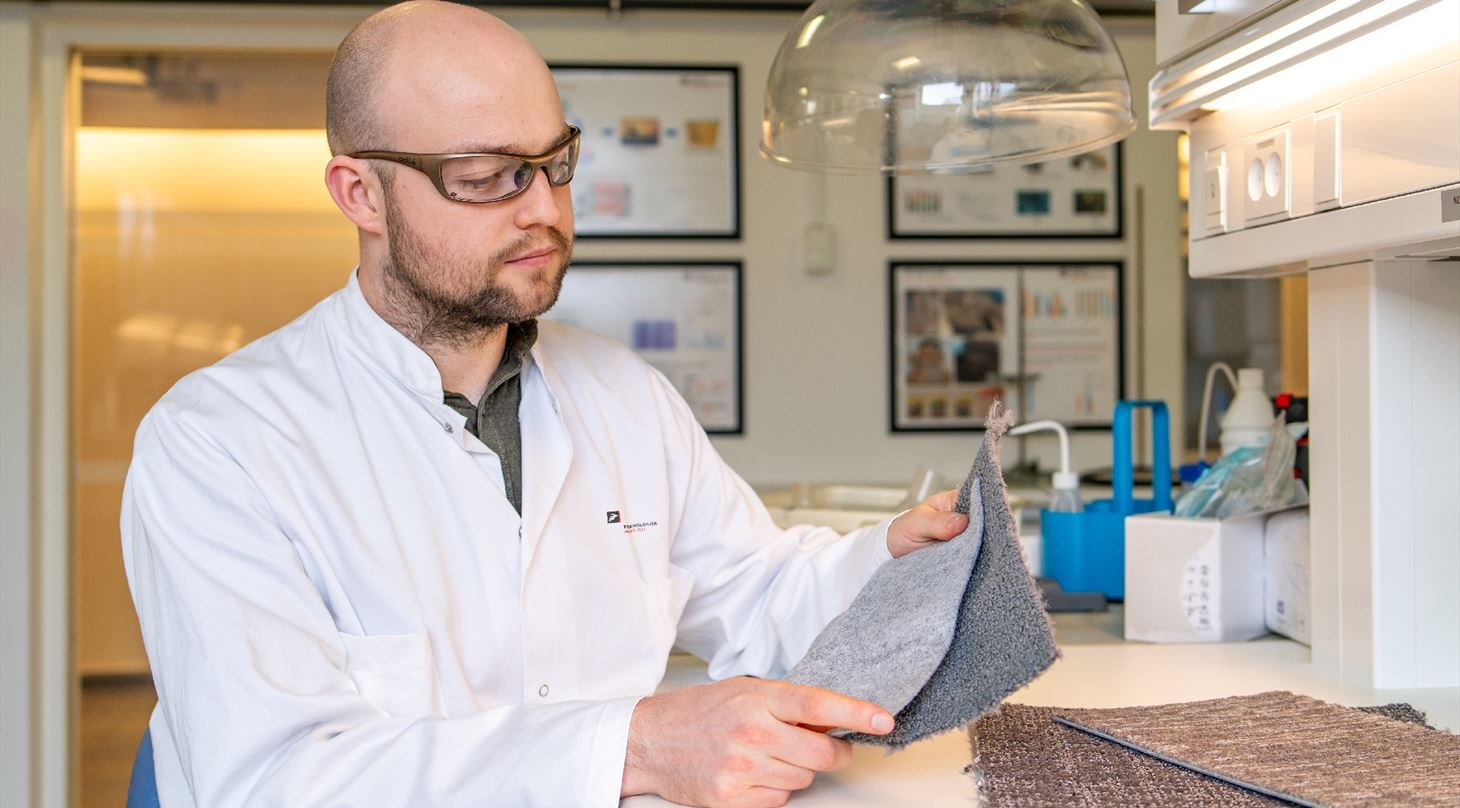
Revolutionizing Carpet Tiles: A Transition from Square to Circular by 2026
Press release published 22nd April 2024.
By 2026, the majority of carpet tile materials will be segregated into clean fractions and repurposed for the fabrication of new carpets. This innovative approach to recycling, once commercialized, the circular solution will be the first of its kind on the market.
“The textile industry is grappling with several challenges in its transition towards sustainable practices.
The prevalent linear production model, characterized by production, usage, and discarding, needs to be replaced with a circular model. This new model will pave the way for the reuse of textiles, giving them a new lease of life. Such a transformation necessitates a new way to collaborate. We've brought together key players that can kickstart a new circular supply chain for carpet tiles, “says Project Manager Aisha Rafique from Danish Technological Institute.
Danish Technological Institute is spearheading the project titled "Circular Carpet Tiles." In partnership with Ege Carpets, Fibertex Nonwovens, and Shark Solutions – a company specializing in recycled dispersion (binder) production – the project aims to facilitate the production of carpet tiles using recycled carpet material. Also collaborating on this venture is Marius Pedersen, a sorting and waste management company, with the project receiving support from the Danish Environmental Protection Agency.
Carpets are challenging to separate and recycle
Carpet tiles, favored for their convenience, particularly in the service sector, are a challenge to separate and recycle due to their construction. At Ege Carpet, each tile comprises a nylon layer and a polyester felt layer, adhered by recycled PolyVinyl Butyral (PVB) sourced from broken automotive windscreens and building glass. These carpets are designed for durability and high resistance to wear, making them tough to disassemble for reuse or recycling.
The project's key focus is to develop effective methods to separate and recycle these materials. It aspires to achieve a high recycling rate for post-consumer carpets, with the aim of recycling the needle felt backing of the carpets into new tiles. The consortium is keen to establish new standards for circular textile production.
Take-back scheme to pave the way for more recycling!
Ege Carpets has already demonstrated the technical feasibility of separating the layers in their laboratory.
The next step involves refining the technology to ensure it is both economically and environmentally viable on a large scale.
"We are launching a take-back scheme that allows customers to return their used carpets. Coupled with a successful technique for separating materials, we are well on our way to establishing a new circular supply chain with our project partners. This is a significant achievement that we are immensely proud of," says Sanne Vehl Rytter, Product Development Engineer at Ege Carpets.
Great potential for dispersion recycling
A solution for recycling the PVB dispersion present in the carpets is also being sought. Shark Solutions, specialized in upcycling PVB, is looking forward to this. Jens Holmegaard, CEO of Shark Solutions, explains, "Many everyday products are held together by an adhesive, so the potential for recycling adhesive products is enormous. We are excited to pioneer a solution where our PVB dispersion, already used in laminated glass, can find a new role in textile products."
The project is set to conclude in 2026, aiming to showcase a large-scale solution by its end. The ultimate goal is to commercially launch circular carpet tiles by the project's completion.
The initiative, supported by MUDP under the Ministry of the Environment, is a collaborative venture involving Ege Carpets, Marius Pedersen, Fibertex Nonwovens, Shark Solutions, and Danish Technological Institute.
Professional contact
- Project Manager Aisha Rafique, Danish Technological Institute, telephone +45 72 20 23 36,
e-mail: araf@dti.dk
Press contact
- Senior Communications Consultant René Wad Andersen, Danish Technological Institute,
telephone +45 72 20 14 74, e-mail: rea@dti.dk